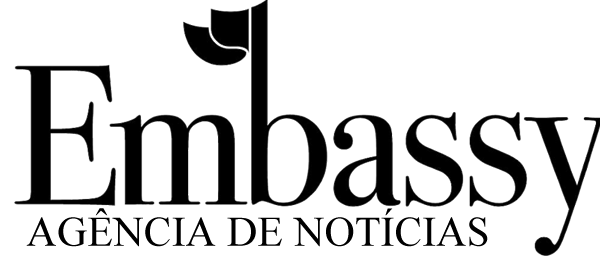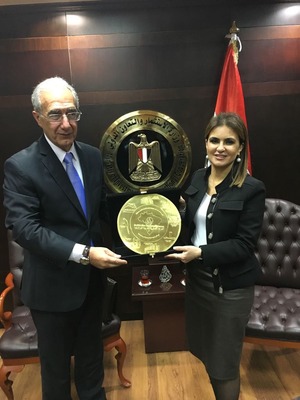The Egyptian ministers of Supply, Trade, and Investments made requests to the Arab Brazilian Chamber of Commerce’s president, Rubens Hannun.
Alexandre Rocha*
alexandre.rocha@anba.com.br
São Paulo – The president of the Arab Brazilian Chamber of Commerce, Rubens Hannun, had several meetings in Cairo over the weekend with top-ranking Egyptian government authorities to discuss ways to increase trade, investments and cooperation involving Brazil and Egypt.
On Saturday (4) he met with minister of Supplies Ali Moselhy. Arab countries in general, and Egypt in particular, are greatly concerned with food security, as their production falls short of meeting domestic demand, so they must import large amounts of food.
“We will work together to find ways to streamline supplies to Egypt. We discussed this matter at length,” said Hannun. He and Abdel Hamid Demerdash, chairman of Egypt’s Agricultural Export Council had spoken on the subject in a meeting last week, as reported by ANBA last Friday.
At the Saturday meeting, a request was made for the Arab Brazilian Chamber to help Egyptians find food exporters in Brazil so the Arab country may broaden its supplier range. Also attending the meeting were the Chamber’s Government Relations manager Tamer Mansour, the minister-counselor to the embassy of Brazil in Cairo, Marisa Kenicke, and the embassy’s Commercial Sector staff member Dina Mongy.
On Sunday (5), Hannun and Mansour were welcomed by minister of Investments and International Cooperation Sahar Nasr. She called upon the Arab Chamber to steer more Brazilian investors into the Arab country. Egypt is in talks for an Agreement on Cooperation and Facilitation of Investments (ACFI), which the Brazilian Ministry of Foreign Affairs proposed late last year. The ambassador of Brazil in Cairo, Ruy Amaral, also sat in the meeting.
Minister Nasr said a new investments law will be approved by the Parliament soon, and that she will submit the text for the Arab Chamber to translate and hand out to prospective investors. The law should streamline operations such as investment, the setting up of business, and funds repatriation.
Also in the agenda was the possibility of holding a forum to advertise investment opportunities in Egypt to Brazilian executives.

Free trade –Also on Sunday, the Arab Chamber executives convened with the Egyptian minister of Trade and Industry, Tarek Kabil, alongside the embassy’s Marisa Kenicke and Dina Mongy. The importance of ratifying the Mercosur-Egypt free trade agreement was one of the main subjects discussed. Argentina, the only party that’s yet to ratify the deal, is expected to do so soon.
Egypt hopes that once deal comes into force, it will be easier for its goods to enter the South American bloc’s member countries, thereby evening out imbalances in trade, particularly with Brazil.
Kabil called on the Arab Chamber to work hard to empower the Brazil-Egypt Business Council, a collegiate organization of private sector delegates designed to discuss issues, solutions, and opportunities in bilateral trade and investment, and to make suggestions to the countries’ governments.
The Arab Brazilian Chamber executives told the minister that Egyptian companies will be at the upcoming São Paulo Supermarkets Industry Association Fair (Apas) next May, and that the Chamber reached an agreement with the Egyptian Trade Office in São Paulo for translation of registration documents for Egyptian goods with the Brazilian Ministry of Agriculture, a requirement so these goods can be sold in Brazil.
“The meetings with the three ministers were testament to the importance Egypt imparts to Brazil and to the Arab Brazilian Chamber’s role,” said Hannun. The Chamber’s executives also had a meeting with executives from crystals company Asfour, which does business in Brazil and is looking to increase its range of sales options in the country. CEO Omar Asfour is a member of the Business Council.
*Translated by Gabriel Pomerancblum






